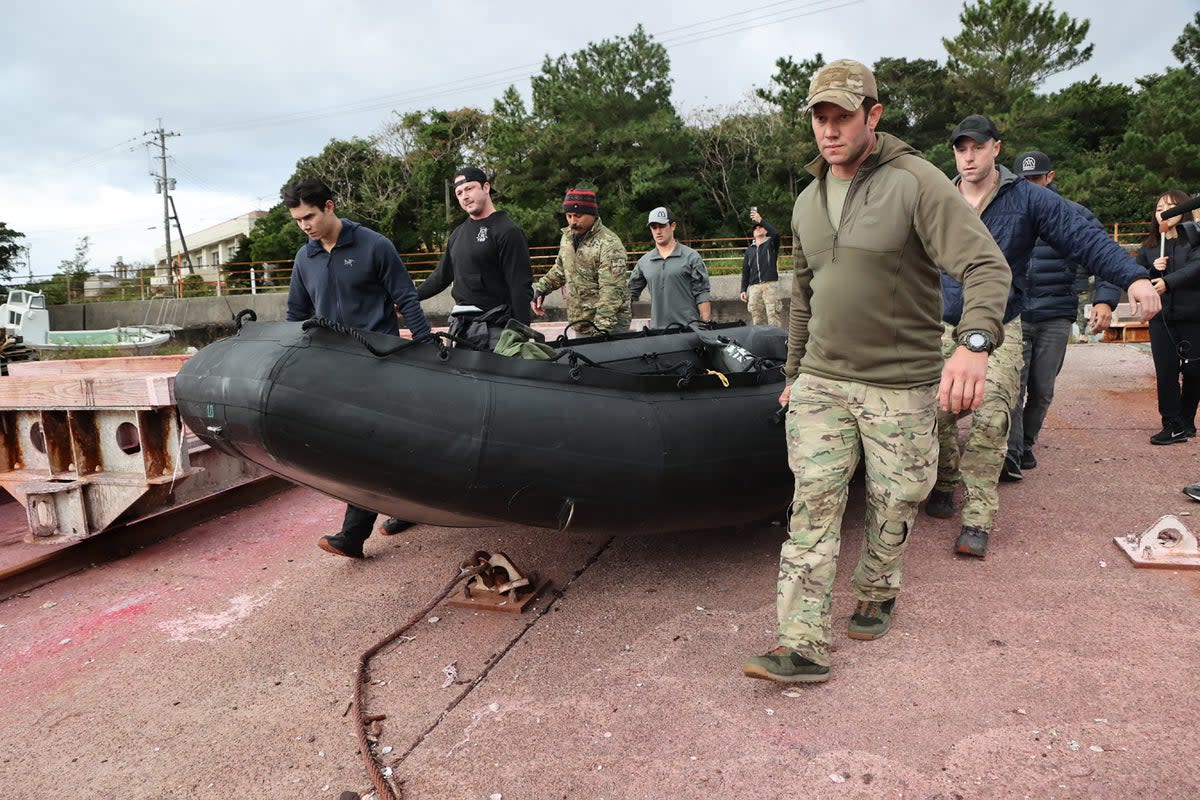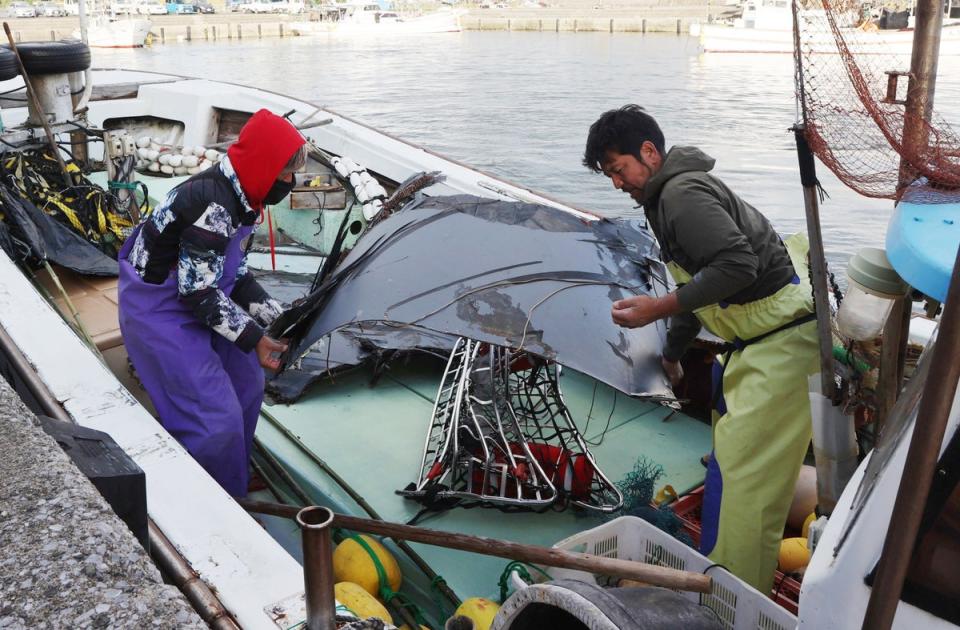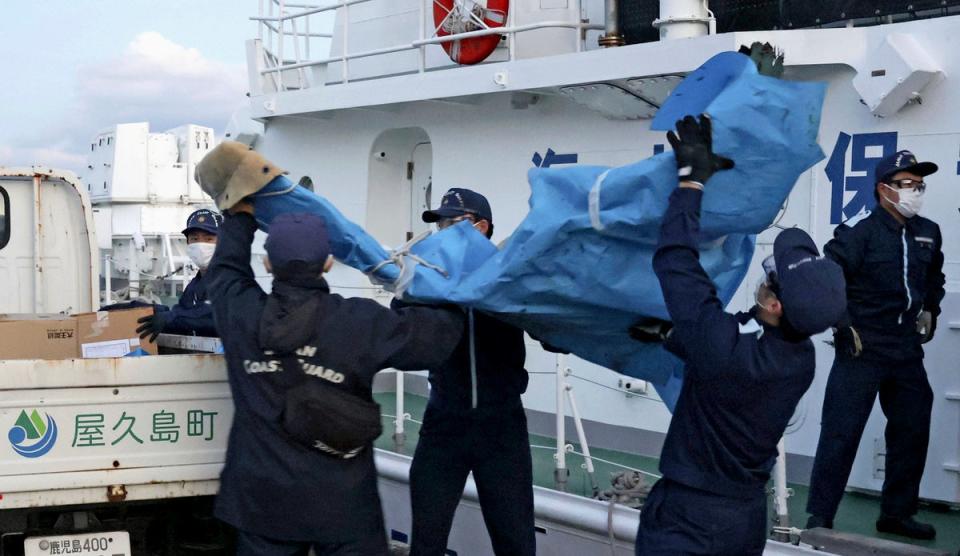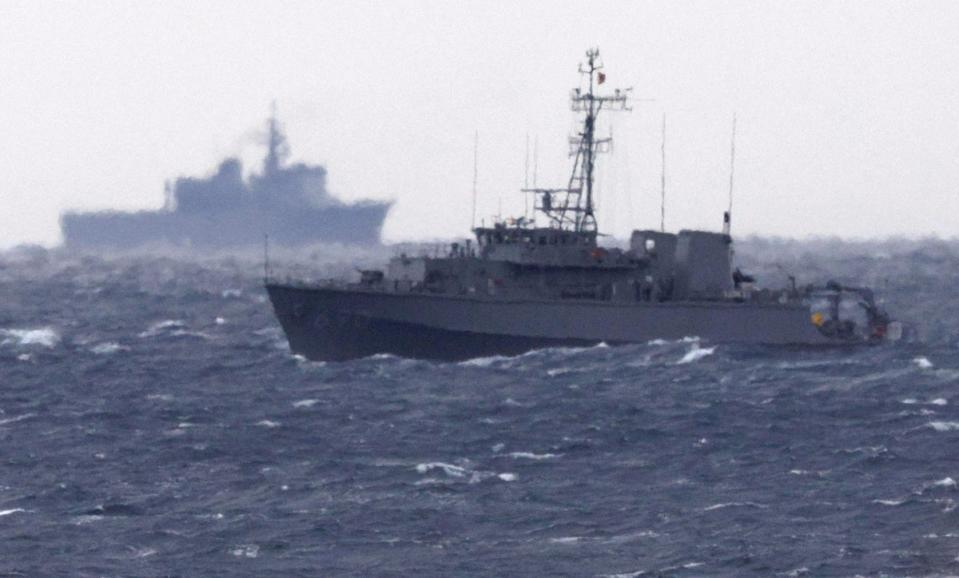US military divers find wreckage of Osprey aircraft off coast of Japan

Military divers from the US and the Japanese Marine Self-Defence Forces have found large parts of the American Osprey aircraft that crashed into the sea in southwest Japan.
The US Air Force confirmed on Monday that part of the fuselage had been located, according to CBS News.
The wreckage included the cockpit which still contained the bodies of five of the eight crew members who were on board the fateful craft, according to the Air Force Special Operations Command.
Both Japanese and US teams had been searching the waters around the island of Yakushima and “had a breakthrough when their surface ships and dive teams were able to locate remains along with the main fuselage of the aircraft wreckage,” the Air Force said.
“The dive teams were able to confirm five additional crew members from the original team of eight that were involved with the crash.”
The Air Force said that two of the five crew members found on Monday had been recovered, adding that there was “an ongoing combined effort to recover the remaining crew members from the wreckage”.

The military branch chose not to identify the five crew members. Prior to this discovery, the remains of only one crew member had been found. Last week, the Air Force identified that crew member as Staff Sergeant Jacob Galliher, 24.
The Air Force added that the US aircraft carrier Carl Vinson, its air wing, divers, and other resources such as unmanned vehicles were being used in the search.
The first-ever deadly Osprey accident in Japan took place last week when the US Air Force CV-22, which was based at the Yokota Air Base in Tokyo, went down.

It left the Marine Corps Air Station Iwakuni in Yamaguchi Prefecture for a training flight headed to the largest US base in the area – Kadena Air Base on Okinawa.
But, soon the aircraft requested an emergency landing on the small island of Yakishima. Not long later, it crashed into the sea close to the island.
Witnesses have said the aircraft flipped and caught fire before hitting the water.
The Japanese Coast Guard, with the help of local fishermen, have been searching 24/7 following the crash.


Some pieces of the aircraft have been provided to the US military. The Status of Forces Agreement (SOFA) with Japan gives the US the exclusive rights to look into the incident.
When two US airmen were injured in an Osprey crash in 2016 off the coast of Okinawa, Japan was also sidelined in the following investigation.
The recent crash is the latest in a series of incidents involving Osprey aircraft around the world and the incident has led to frustration and concern in Japan.
Japan is the US’s top ally in the region and more than 50,000 American troops are stationed in the country.
The Japanese government has requested that the US ground its Ospreys in the nation until the aircrafts’ safety can be investigated.
The US has disregarded the request and is continuing to fly the craft despite concerns it may harm relations with Tokyo at a time when China is carrying out an aggressive military expansion in the region.


Japan is the only other nation flying Ospreys and its military has grounded its own on a temporary basis.
The Japanese Defence Ministry said that the US has six Ospreys at Yokota and another 24 at the Futenma base on Okinawa, according to CBS News.
The hybrid aircraft was initially used in Japan more than ten years ago and is able to take off and land vertically like a helicopter before changing the angle of the rotors to fly at high speeds like a plane.

If all the crew members died in the recent crash, it would be the deadliest incident involving an Osprey ever.
It comes after three US Marines were killed and eight others were taken to hospital following an Osprey crash on an Australian island in August, CBS notes.
In the summer of last year, five Marines died when an Osprey crashed in the desert in California.
The centre-left Japanese paper Mainichi has pushed Tokyo to insist on taking part in the investigation into last week’s crash, arguing that the agreement with the US must change and Japan must stop being sidelined.


